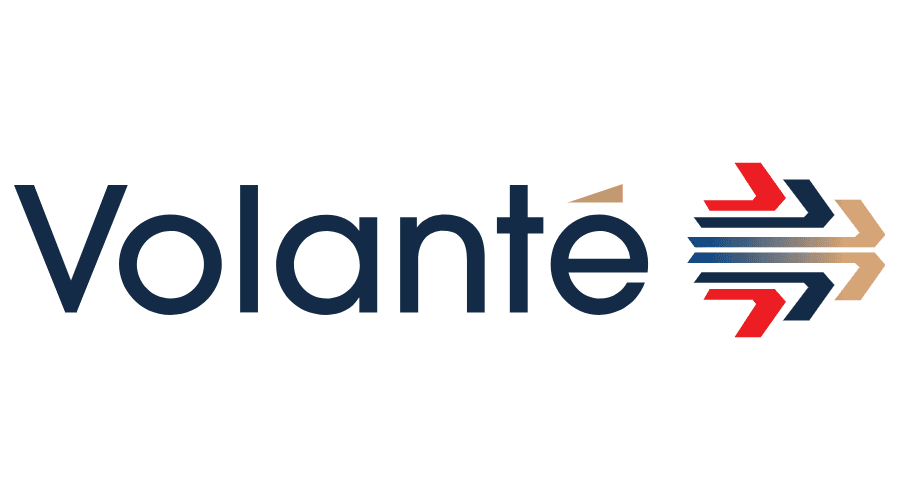Published
- 05:00 am

Creatio, a global software company providing a leading low-code platform for process management and CRM, today announced the launch of a free low-code application development online course for university professors and college teachers. The program is aimed at equipping educators with knowledge on how to create apps, make UIs, build business processes and automation, and customize data structure without extensive coding skills. This will help students develop new useful skills and prepare them for the low-code development future.
Starting today, June 15th, Creatio’s team of educational professionals will be sharing their knowledge, expertise, and practical experience with teachers and professors from over 100 institutions in North and South America, Europe, Australia, Asia and Africa. The course includes a kick-off meeting, instructor-led training, e-learning, development of a project, consultations with trainers, and a certification exam. The duration of the course is 17 hours and it consists of in-class activities and individual practical assignments. Upon successful exam completion, Creatio provides Studio Creatio, enterprise edition subscriptions and course materials at no cost for educators to be able to hold the low-code app development course for their students. The best students will also get a chance to pass a citizen developer certification exam with Creatio for free.
For more information, please visit www.creatio.com
Related News
- 01:00 am

Modulr has announced the launch of its Payment Initiation solution, after registering with the Financial Conduct Authority as a Payment Initiation Service Provider (PISP). This will give Modulr’s customers a new, fast and cost-effective way of accepting payments.
The new solution will be welcomed by businesses that are underserved by the current ways of accepting payments. Although card payments deliver a smooth customer experience, they can incur significant fees for merchants that process large transactions. And traditional bank transfers are slow and outdated, requiring customers to leave the merchant’s page, often resulting in drop-off.
Modulr’s Payment Initiation allows merchants to accept payments directly from their customers’ banks. The process is as easy and streamlined as accepting card payments, but the solution operates on a fixed fee basis rather than charging a percentage per transaction. This could lead to significant savings for merchants.
Payments land directly in Modulr accounts and users can receive instant notifications via web-hook when funds have arrived. This speeds up reconciliation and allows merchants to process customer refunds at a push of a button. And since payment information is prepopulated, the customer experience is streamlined and there’s no risk of entering the wrong payment amount or bank account number.
Modulr’s Payment Initiation can also reduce the chance of fraud, as it requires customers to verify each transaction through their bank which commonly uses two-factor authentication.
The appeal to merchants is clear, but other sectors will benefit from Modulr’s Payment Initiation too. It will provide neobanks with a cost-effective and streamlined way of letting customers top up their accounts. And it will give many other sectors – from property services to lending – a faster and more reliable way of taking payments from customers or clients.
Modulr’s Payment Initiation is currently connected to major UK banks with European banks to follow.
Jakub Zmuda, Chief Product Officer at Modulr, says: “Payments are too important to get wrong – yet many businesses are struggling with hidden inefficiencies in their payments processes. Existing payment methods simply aren’t fulfilling the needs of merchants, especially those that are processing large volumes or high value transactions. Modulr’s Payment Initiation will be a game-changer for any business that accepts customer payments. It’s fast, easy and secure – delivering instant notifications and a more streamlined customer experience. It’s the next big step towards delivering the Instant Economy for our users and their customers.”
For more information, read our Payment Initiation guide.
Related News

Marcus Treacher
SVP of Customer Success at Ripple
There’s no denying that COVID-19 has disrupted the global economy as hundreds of millions of people around the world have had to grapple with job losses, business closures and lockdowns. see more

Koen Vanpraet
CEO at PXP Financial
The last decade has been incredible for fintech, with advancements being made across a range of areas including retail banking, wealth management and, in particular, payments. see more
- 02:00 am

Flagstone, the UK’s largest smart cash platform, today assured all customers it was ‘business as usual’. The platform, which has met a doubled demand from new customers since the Covid crisis began, made the announcement to reassure customers that service levels remain robust, and it has adequate capacity to welcome even more new customers - despite the Covid Crisis.
The announcement follows significant growth of the challenger brand, who’s unique ‘one application, many banks, multiple accounts’ proposition has resulted in a doubling of new applications since the crisis began.
Early on in the crisis Flagstone successfully adapted to a working from home operation, this has enabled the business to cope with higher than anticipated demand, maintaining its service levels throughout.
Meanwhile many banks have been reducing their product portfolio in the market, encouraging savers to look for better deals for their cash deposits.
Chief Marketing Officer Eylem Yangin says, “Although the initial post-lockdown spike is behind us, we still see a persistent level of elevated demand and interest in our cash deposit platform. Cash remains a core asset, despite falling interest rates. Our savers are focused on the security of their cash deposits, and they have come to Flagstone because our ‘many banks’ offering maximises the FSCS protection available to them. Since the lockdown many Flagstone customers experienced some degree of difficulty in making bank transfers to deposit it with Flagstone. The crisis has impacted particularly on the authorisation process for high value transfers, historically facilitated by visits to the branch. Yet despite these obstacles, we are still seeing sustained funds inflows.”
The overall trends across the Flagstones platform since lockdown are:
- A double in demand from new customers applying to the platform in March and April
- Deposits moving into shorter-duration products, such as 3-6 months’ notice, fixed-term products and Instant Access accounts.
- An overall decline in interest rates, which remain competitive (details below)*
- A steady stream of new banks joining the Flagstone platform. Flagstone now partners with 45 banks and offers up to 250 accounts, a number of which are exclusive to Flagstone
*Interest Rate Information
From 1.49% this time last year, to 1.37% by January this year and finally at 1.13% by the end of May. As of today, some of our best rates for Individuals have been 1.80%* for 95 day Notice and 1.20%* for 9 Months Fixed Term. For our business and SME clients, we currently offer 1% for Instant Access for those who prefer to maintain easy access to their cash reserves. These rates will be subject to revision soon, thus it is advisable to act quickly.
Gross annual rates, correct as of 10th of June. Rates are subject to constant change and updates.
Related News
- 09:00 am

Acronis, a global leader in cyber protection, today announced that Acronis Cyber Protect, its cloud offering through service providers, is now available for all, as a beta version, to easily deploy on-premises. The game-changing flagship solution integrates data protection, cybersecurity, and endpoint management – to help people navigate the crucial need for a safe remote work environment. With this release, IT teams get to really try the technology and deploy the solution’s unique capabilities across all their environments to safeguard all data, applications, and systems.
“The COVID-19 pandemic requires more businesses than ever to adopt remote work policies,” said Acronis Executive Officer Serguei “SB” Beloussov. “While remote work offers a lot of benefits, it can put valuable company data at risk of cyberattacks. With the expanded access to a beta version we want to help more organisations and individuals protect their data, devices, and infrastructure.”
A recent survey by Gartner revealed that 74% of organisations intend to permanently shift some employees to remote work. The ability to add comprehensive and proven endpoint security – without increasing complexity or IT staffing requirements – has become a critical business need but also a competitive advantage.
Embedded remote work application protection
- Vulnerabilities from web applications are automatically blocked
- Online meetings via Zoom, WebEx, MS Teams or other, are protected to prevent session ID theft
Enabled proactive cybersecurity
- AI-based behavioural and heuristic anti-malware stop ransomware and cryptojacking attacks in real-time
- Acronis Cyber Protect is VB100 certified. Its unique capabilities and integrations recently earned the 2020 New Product Innovation Award for Data Protection from Frost & Sullivan
Embraced by the industry
In an IDC report published by Phil Goodwin and Robyn Westervelt, Acronis Cyber Protect was named: “one of the most comprehensive attempts to provide data protection and cyber security to date”, and added that “Acronis shows potential to disrupt traditional IT security vendors by delivering integrated components for backup/recovery and malware detection, and protection.”
Registration to test the beta version of Acronis Cyber Protect -on-premises is now open.
Related News
- 07:00 am

Volante Technologies Inc., a global provider of payments solutions to accelerate digital transformation, today announced that First American Trust FSB has selected Volante’s US Fedwire as a Service. First American Trust FSB offers banking solutions for the escrow and real estate industries. Volante’s service, running on Microsoft Azure, will replace the bank’s legacy Fedwire processing solution and modernize its payments processing infrastructure.
By automating wire processing with Volante’s Fedwire as a Service in the cloud, the bank will benefit from resilient, reliable, and scalable payments technology. They will be able to smoothly handle increasing wire volumes, and ensure that their customers’ wires are never missed, duplicated, or delayed.
In the future, First American Trust FSB will also be able to easily extend the service to other currently available payment types such as ACH, The Clearing House RTP®, and SWIFT cross-border payments. The service’s native ISO 20022 messaging and 24x7x365 operational capabilities also ensure that the bank will be ready to make the most of the Federal Reserve’s upcoming enhancements to the U.S. payment system, including the FedNow real-time payment system.
Robert Lawson, Senior Vice President, Strategic Initiatives at First American Trust FSB, said, “We were looking for a partner that could help us meet our strategic goals by providing a service-based payments processing capability that would create greater efficiencies within the bank, and enable a superior experience for our clients.”
“Volante’s payments as a service (PaaS) in the cloud meets our business requirements, supports our growth, and ensures that we will be able to quickly roll out new payment services in the future,” Lawson continued.
Vijay Oddiraju, CEO, Volante Technologies, said, “Volante’s Fedwire as a Service provides end-to-end processing of wires from corporate initiation through to clearing and settlement, with direct connectivity to the Fed. By deploying the service in the cloud, we are offering banks rapid implementation and time to value, with the same reliability and speed taken for granted in consumer payments. The cloud based, active-active-active architecture, an industry first, delivers unparalleled availability, ensuring First American Trust will be able to focus on growing their business without any limitations on scale or resiliency.”
Ed Fandrey, Vice President, Financial Services at Microsoft Corp., said, “Many banks are experiencing significant growth in Fedwire volumes – and electronic payment volumes overall. Legacy systems and services cannot manage this growth and cloud-based payment processing services are an ideal resolution. With ‘cloud-first’ approaches becoming the norm for payments processing, Microsoft Azure is an ideal fit.”
Related News
- 02:00 am

Yolt Technology Services (YTS), the leading European open banking provider, has been chosen by Dutch accounting software provider Jortt to provide API technology to power its services.
By choosing YTS’ PSD2-compliant API solutions and investing in open banking technology, Jortt will be able to automatically fetch transactions and balances for SME businesses using its accounting software. YTS’ Account Information Services (AIS) integrations will remove the need for Jortt’s 40,000 users to repeatedly download and re-upload MT-940 or CSV files. This will give users the most up-to-date picture of their business’ finances in real time, saving time, reducing costs, and increasing precision across the process.
With the unified YTS API, Jortt will no longer need to build and maintain connections with individual banks and all information will be received in a simple, standardised format.
YTS’ latest partnership with Jortt is part of its ongoing commitment to helping like-minded businesses experience the potential in open banking technology and the transformative impact it can have on business efficiency, cost reduction and the front end user experience.
Hilco de Roo, Chief Executive Officer at Jortt, commented:
“We chose YTS as our open banking provider because of its can-do mentality. As of our first introduction, we have been moving forwards rapidly – getting things done! Whether it's about legal or technical advice, YTS is an experienced partner with a problem-solving approach.
“YTS’ API technology will bring new and improved functionalities to our platform, empowering our mission as a business: ‘fully automating your accounting’. Our focus is on how we can transform accounting so that it meets the highest demands of the entrepreneur of today and tomorrow, and YTS’ open banking services fully match that ambition.”
Leon Muis, Chief Business Officer at YTS, commented:
“I’m thrilled Jortt has chosen YTS as a partner to support its open banking strategy, and I’m confident our API technology will be truly transformational for the business and its customer base. Increasing security and value-added services are core components of YTS’ offering, and we look forward to working closely with Jortt to deliver increased value and a seamless digital experience for its users.”
Related News
- 05:00 am

New independent data for FICO, a global leader in analytics software, reveals that despite universal consumer advice that one password for all financial accounts is equivalent to leaving the front door open, only 40 percent of Brits have separate passwords for each of their financial accounts. Nearly one in five Brits write down all their passwords, another security no-no. On a brighter note, there is wide acceptance of advanced security options such as biometric data to protect financial accounts.
For more information visit https://www.fico.com/blogs/fico-digital-banking-study-security-and-authentication-digital-world
The FICO Consumer Digital Banking study found a large percentage of Brits currently do not take the necessary steps to protect their passwords and logins online. This is especially worrying since the onset of COVID-19, as the majority of financial transactions have gone digital. It seems that the youngest generation – 18-24-year olds – are the most likely to have just one password for all accounts (8 percent). This age group is also the least likely to have 10 or more passwords for their accounts (10 percent).
Middle aged Brits (45-54-year olds) are the biggest culprits of having just 2-5 passwords which they use across all financial accounts (28 percent). Perhaps dispelling ageist perceptions, the 55+ age group are the greatest advocates of having separate passwords for every account (41 percent), albeit that is only 1 percent above the national average.
Remembering passwords is another security weakness revealed by the FICO research:
- Only 18 percent claim to use recommended password management software
- 18 percent also admitted to writing their passwords down.
- 42 percent claimed to be able to remember their passwords. However, acknowledged forgotten usernames and passwords are a regular pain point.
- Nearly a quarter (24 percent) reported that they abandoned an online purchase because of forgetting their username or password. A similar percentage have been unable to check an account balance.
- Forgotten usernames and passwords have stopped 15 percent from opening a new account with an existing provider.
“Forgotten usernames and passwords can result in online purchases being abandoned; they even impact new account openings with existing providers,” said Sarah Rutherford, identity solutions expert, FICO. “It’s important that consumers are given the confidence that transactions can be completed swiftly without any increased risk to security by using biometrics, especially with consumer behaviours switching to digital channels as a consequence of COVID-19. Fortunately, our survey showed that a move towards more secure authentication methods has positive support from consumers.”
When logging into their bank via mobile app, over half (53 percent) are prepared to use a one-time passcode (OTP) by SMS when security checks are required. However, this method has its own weaknesses as 17 percent believe their bank account provider does not have their current mobile phone number. And less than half say their bank has their correct home phone (landline) number. This means that, just as online payments are becoming the norm for most Brits, for as many as 1 in 6, authentication for online payments including those by debit card could fail.
The good news is that biometric methods are now being widely accepted for security. 71 percent are happy to provide their bank with a biometric. And for logging into a banking app, 48 percent said they would be happy to use a fingerprint scan, 25 percent a facial image and 23 percent a voiceprint. Only 13 percent think that a bank should never capture a biometric.
Most people (78 percent) also accept banks’ analysing their device settings for security purposes. 70 percent also accept the use of behavioural biometrics such as analysis of the way they hold their phone or type in their password.
“Whilst our research was conducted just before the COVID-19 lock-down, the findings send a very clear message that UK consumers understand the greater security benefits of biometrics over passwords,” commented Rutherford. “Since face-to-face interactions are likely to be reduced for some time to come, it is crucial for consumers and financial institutions to have mutual respect for the benefits biometrics deliver – not just for security but in terms of removing the delay and friction from financial transactions.
“Consumers don’t generally manage their passwords well, so biometrics offers a far more simple and secure way to verify a person’s ID. Some banks are already using biometric ID as digital account opening becomes the norm, and this is set to grow as they strengthen their ID verification processes. And financial institutions should be reassured that, when it comes to providing a biometric for security purposes, people are much happier to provide one to their bank, at 71 percent, than to a government agency at 29.5 percent.”
Related News
- 07:00 am

Ziglu, the challenger and cryptocurrency platform, has launched after completing a successful pilot phase; customers can now download its app from the Apple App Store, an Android version will follow soon.
Ziglu was founded by Mark Hipperson, best known as the co-founder and CTO of the pioneering challenger, Starling Bank. Hipperson has successfully built the business based on the premise that customers deserve a smart, accessible and fair way to access crypto and fiat currencies.
Cryptocurrencies have long been the preserve of the expert, however, at a time when consumers are seeking greater financial inclusion, accessibility and control Ziglu’s vision is to open up access to cryptocurrencies for all.
With Ziglu, users can instantly and effortlessly exchange their money into digital currencies, including Bitcoin, Ether, Litecoin & Bitcoin Cash at competitive prices and monitor their balances in real-time.
This is the first time that Ziglu has been available beyond its beta testers and friends & family. Ziglu has already engaged their waitlist to welcome them on board and is ready for new members to join the Ziglu community.
Ziglu is one of a handful of account providers in the world that has designed and built a financial platform in the cloud with flexible, scalable and bank-grade technology. Ziglu offers fair and fully transparent pricing with user funds held in a segregated account.
Mark Hipperson, Ziglu Founder and Chief Executive Officer said: “This launch marks the beginning of an exciting journey for Ziglu to deliver transformational financial services for our customers. By offering immediate and safe access to best-price crypto, customers can spend, exchange and send their money, regardless of the currency, where, when and how they want.”









